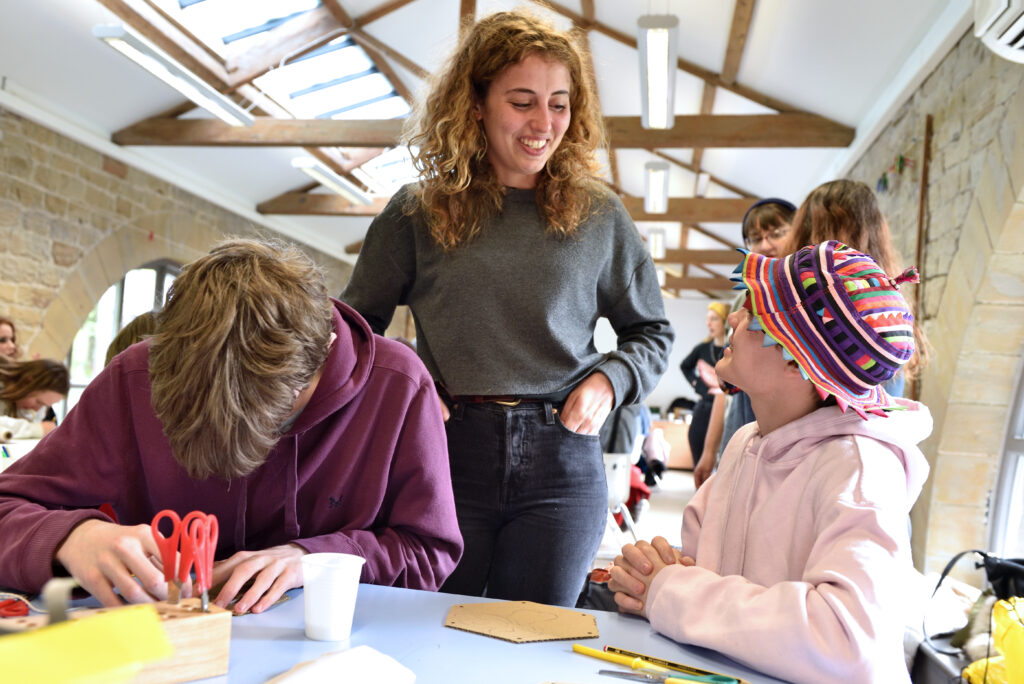facilitation
noun
- the action of facilitating something. “third-party facilitation seeks to promote the resolution of conflict”
- PHYSIOLOGY the enhancement of the response of a neuron to a stimulus following prior stimulation. “the response is dependent on the frequency of stimulation and on neuromuscular facilitation”
- the process of making something possible or easier:
- Our work involves the facilitation of cooperation between members of the team.
- The company provides consulting and facilitation services.
- the act of helping other people to deal with a process or reach an agreement or solution without getting directly involved in the process, discussion, etc. yourself:
- Instructors should have appropriate facilitation skills and be able to develop learner autonomy.
- The project focuses on the facilitation of regional trade and investment.

Apply Your Thinking:
What definition would you use?
Write your own personal definition of Facilitation (process) AND Facilitator (role). Think about the words you use to define this process and this role, and come up with your own definition, for you. You will need to do a bit of reading through this page, and some research on your own, to build a clear definition for yourself.
Facilitation is the ability to plan and scaffold (a word we go into later) learning and development spaces for participants. The facilitator is basically a guide who supports effective group work, sets challenges and questions, and supports the movement through a learning space, topic or challenge for the participants. Facilitation is a skill to help move people move through a space, keep them on track and support their learning. The facilitators role is to get participants to contribute and collaborate, share and discuss, create and learn around a topic or theme. The aim of a facilitated session is often to create tangible impact, outcomes or new ideas, learn through doing. Participants should feel that their presence and input has been valued and important to the session.
Facilitators are found and needed in most aspects of society, from business, to education, to government, to hospitality, to social spaces.

See Also: Facilitators School: What is Facilitation?
Check out this clear, simple insight into what facilitation is. Make some notes about anything you learn thats new or interesting.
This self study pack aims to bring a holistic view to the role of a facilitator, and we explore the role of facilitating through the lense of educating participants around something that YOU want to share or explore with people. Throughout this self study pack we will invite you to continuously situate yourself in the learning experience, and consider your humanness that will help you to flourish as a facilitator. As someone who aims to hold space for others to learn, you really need to consider how you want to be seen in that space. Think about how people will put their trust in you, feel comfortable to turn to you and ask questions, feel confident to participate and share in front of you.

Note:
As you work your way through this Study Pack, consider your own experiences of learning and any experience you have of delivering or facilitating. Build a relationship between what you see, read, or watch here, and apply this to your own ideas to really help you begin to build you own personal facilitation practice.


Share and Collaborate:
Research key terms and talk to other people about what these mean to them, and build your own ‘bank’ of terminology:
During this SSP we will refer to lots of key terms: teaching/teacher, delivery, facilitating/facilitator, learning/learner, audience/participants, workshop/session, practice/practitioner, and educating/educator. It would be really beneficial for you to explore these terms and build a simple definition of each word for yourself. Think about the words in this list. Which word do you feel affiliated with, or do you think suits the style you wish to adopt? None of these terms are correct and so you will hear all the practitioners in this course use them interchangeably.
So, the process of facilitation in this SSP will look at approaches where YOU, the facilitator, work with an audience, your participants. In YOUR role as Facilitator you will be developing active and engaging sessions, learning spaces where other people participate during the session, to make stuff happen. We will assume that your aim is to encourage participants to be active learners where they take responsibility and an active approach to developing their own learning, while being supported and encouraged by your facilitation plan. There are specific theories that support this style of teaching or facilitating, we will come to this later. Broadly, we will be looking at reflection, creative tools and approaches (this does not mean art or drawing only), and facilitation techniques that support interaction and collaboration.






